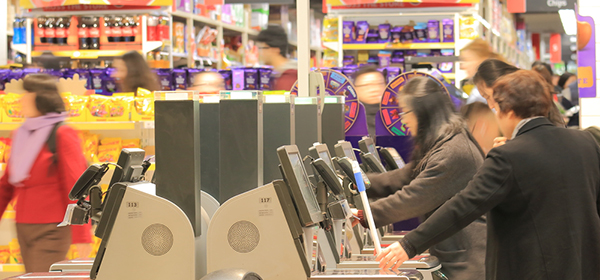When is an Australian crumbed prawn not an Australian crumbed prawn?
Under old food-labelling laws, if the prawn was imported but crumbed in Australia, it could be regarded as an Australian crumbed prawn. That has not been the case for almost 12 months and from 1 July, retailers and producers who still ‘twist’ the truth will be on notice.
For anyone who tries to buy Australian-grown or Australian-made food products, life should be about to get easier. Who hasn’t been caught out by confusing labelling, such as orange juice that is bottled in Australia from locally grown and imported fruit or juice?
From Sunday, mandatory country of origin food labelling laws will be enforced by the Australian Competition and Consumer Commission (ACCC), which will have officials prowling the shelves to ensure that producers are fully compliant.
The ACCC says it will conduct market surveillance checks on 10,000 food products to ensure businesses are correctly displaying the new labels.
All businesses – manufacturers, processors and importers that offer food for retail sale in Australia – will have to comply with the Country of Origin Food Labelling Information Standard, which sets out how claims can be made about the origin of food products.
The new requirements will apply to most food offered for retail sale in Australia, although it does not apply to food sold in restaurants, cafés, take-away shops and schools.
“Consumers should look out for the new labels if they want to find out where their food is grown, produced, made or packed, so they can make an informed decision about the food they buy,” said Deputy Chair Mick Keogh.
“We’ve been providing guidance for businesses over the past two years about the new food labelling system, including how to apply and interpret the standard. We are now entering the compliance phase, where we are making sure businesses are presenting accurate information about country of origin to their customers.”
Mr Keogh said ACCC inspectors would initially focus on fresh or short-shelf products sold by supermarkets.
“We will raise concerns with businesses where we believe there is an issue with country-of-origin labelling. As always, we are able to escalate cases which warrant stronger action,” he said.
“Some consumers are willing to pay extra for products grown, produced or made in Australia, and producers and importers should be aware that any claim which is likely to mislead consumers will also be a breach of the law.
“We just want to ensure that consumers can make informed choices and businesses have a level playing field to compete fairly in relation to these claims.”
The Country of Origin Food Labelling Information Standard 2016 started under Australian Consumer Law on 1 July 2016.
The law states: “To claim that a food with imported ingredients was ‘made in’ a particular country, processing in that country must have created a product that is fundamentally different in nature, identity or essential character from the imported ingredients that went into it. Minor processing which only changes the form or appearance of imported goods (e.g. crumbing an imported prawn or reconstituting an imported juice concentrate) will no longer be enough to justify a ‘made in’ claim.”
The labelling requirements will vary depending on whether the food is regarded as a priority or non-priority food.
Priority foods include meat, seafood, fruits and vegetables, most dairy products, breakfast cereal, bread, nuts, honey and non-carbonated fruit juices.
Priority foods that are grown, produced or made in Australia will need to be labelled with a “three-part standard mark” label which features the well-known image of a kangaroo in a triangle, a bar chart that shows the proportion of Australian ingredients and descriptive text.
Non-priority foods include seasonings, confectionary, biscuits and snack food, bottled water, soft drinks and sports drinks, tea and coffee, and alcoholic beverages. These will only be required to carry text country of origin statements.
All imported foods must display country of origin labelling.
The ACCC, along with state and territory fair trading agencies, will be responsible for enforcing the standard.
Will the new standards help you shape your purchases? Have you been frustrated by the lack of clarity in this area?
Related articles:
Food to boost gut health
Foods to avoid at airports
How safe is your food?

